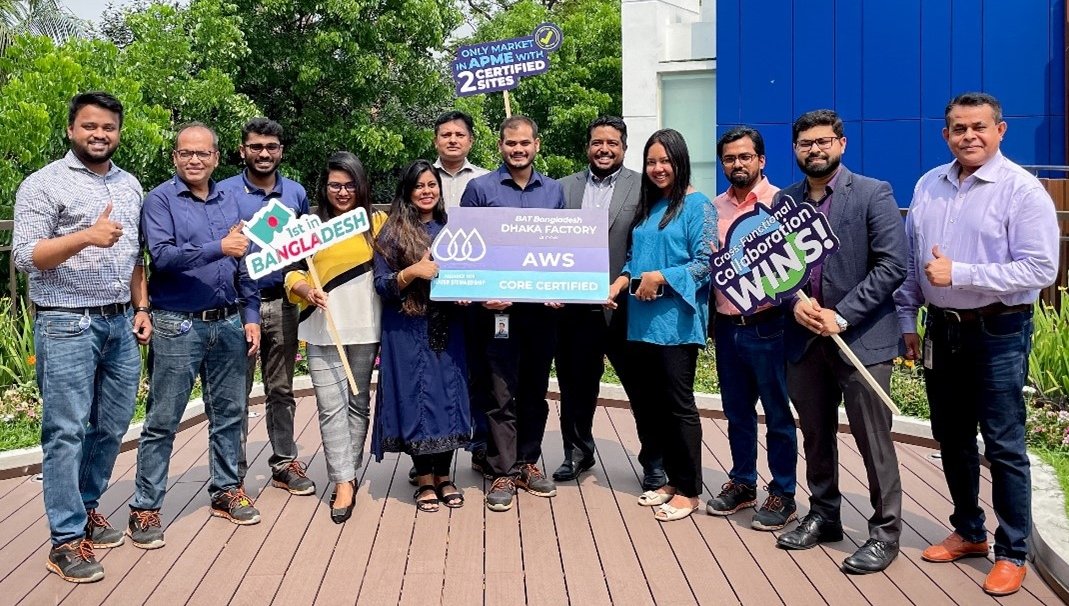BAT receives Alliance for Water Stewardship certification

Water scarcity is one of the most critical crises the world is battling through right now which is predicted to be persisting even in the upcoming future. Clean water management has been at the heart of Environmental, Social and Governance (ESG) discussions in recent times and is evidently a prominent factor in shaping up the future. BAT Bangladesh recognizes the acuteness of water crisis and acknowledges its responsibility in ensuring good water governance across all levels of the organization. The company has taken great strides in planning and executing on many initiatives to drive this change.
BAT Bangladesh has chalked out detailed water management plans for both its Dhaka and Kushtia factory, in accordance with the International Water Stewardship Standard, or AWS Standard (the universal framework for the sustainable use of water). The goal is to optimize the water use on-site and reach the state of zero discharge release to the environment. Efficient recycling, a key focus in the organization’s water management plans, has reduced pressure on groundwater withdrawal by stalling the water depletion rate in the concerned areas.
On the other hand, huge volumes of water are required for cultivation hence irrigation water efficiency is of paramount importance. BAT Bangladesh conducts ‘Leaf Farmers’ Sustainability’ meetings every month to grasp an understanding of the grassroots level concerns and share the vision of responsible water use with the growers. The information obtained from the interactive sessions enables the research team to prepare, plan and improve the status. Currently, the water usage rate is 1954 m3/Ha which will get down to 1817 m3/Ha as per the ‘Water Use Reduction Plan’. Poly sleeves are being used during irrigation to reduce water wastage by 25%. Alternate furrow irrigation and other best practices are being followed to ensure efficient water governance in the field. Besides that, to minimize adverse environmental impact, BAT Bangladesh prioritizes the introduction of new irrigation techniques and optimum time and rate of irrigation for maximum output.
BAT Bangladesh primarily depends on groundwater for both its process water and social water needs. It treats wastewater using an in-house Effluent Treatment Plant (ETP) and Sewage Treatment Plant (STP). ETP conducts the primary treatment using biochips, then the ETP discharge is fed to Reverse Osmosis Plant (RO) and the rest is used in gardens and in biofilters. The STP discharge also goes to RO as input which treats water through a technology of partially permeable membrane giving output in two sections. The ‘accept’ section has water quality as good as distilled water and is further used in Utility equipment. The ‘reject’ section is recycled as flush water in washroom appliances.
Moreover, BAT Bangladesh has introduced a Pressurized Pump Package Unit (PPPU) for higher return of condensate. So, steam generated during the factory operational procedures return to boilers as hot water. This process recovers around 28 m3 of water every day which would have been wasted otherwise. The discharge pathway of the Air Handling Unit (AHU) has been redesigned which is also saving 20 m3 of water every day. Vacuum water is being reused in the boiler leading to the conservation of both water and energy.
The initiatives ranging from bringing in small modifications to launching large projects have inspired and nourished the ESG-centric mindset in the organization. They believe in creating awareness about the responsible use of water within and beyond the organization, which is key to making a big impact across the nation.



